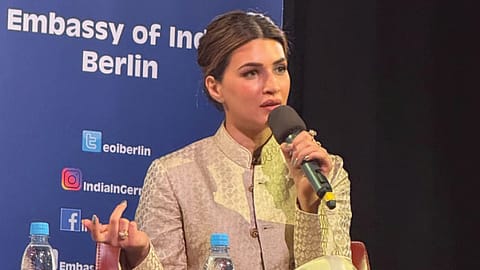Kriti Sanon becomes first Indian actress to keynote World Health Summit, urges investment in women’s health
Speaking at the high-level session “Women’s Health – Global Wealth: Catalyzing Returns on Bold Investments,” Sanon underscored that women’s health remains severely underfunded, despite women comprising half of the global population.

Kriti Sanon, Bollywood actor, producer, and UNFPA India’s Honorary Ambassador for Gender Equality, became the first Indian actress to address the World Health Summit 2025 in Berlin, calling for strategic investments in women’s health and highlighting its significant economic and social returns.
Speaking at the high-level session “Women’s Health – Global Wealth: Catalyzing Returns on Bold Investments,” Sanon underscored that women’s health remains severely underfunded, despite women comprising half of the global population. She stated, “Women’s health is not a side issue. It is the cornerstone of humanity's progress, prosperity, and future.”
She cited compelling figures to illustrate the investment case, noting that every USD 300 million spent on women’s health could generate USD 13 billion in returns, a roughly nine-fold ROI. “Investing in women’s health is not just a moral imperative; it is a strategic investment in our collective future,” she said, emphasizing the broader economic impact on families, communities, and national development.
Sanon also highlighted the principle “Nothing about her, without her,” advocating for women’s inclusion in decision-making about their own health. Drawing on field visits, she shared first-hand observations of child marriage, maternal healthcare gaps, and young women’s exclusion from health systems, stressing that timely interventions can transform lives.
Her address signals a growing Indian presence in global health discussions and reinforces her commitment as UNFPA India’s Ambassador to champion sexual and reproductive health, maternal healthcare, and adolescent girls’ inclusion in policy decisions.
This engagement aligns with broader global efforts to mobilise investment in women’s health as both a social imperative and an economic growth strategy, underscoring the intersection of health, gender equity, and development.